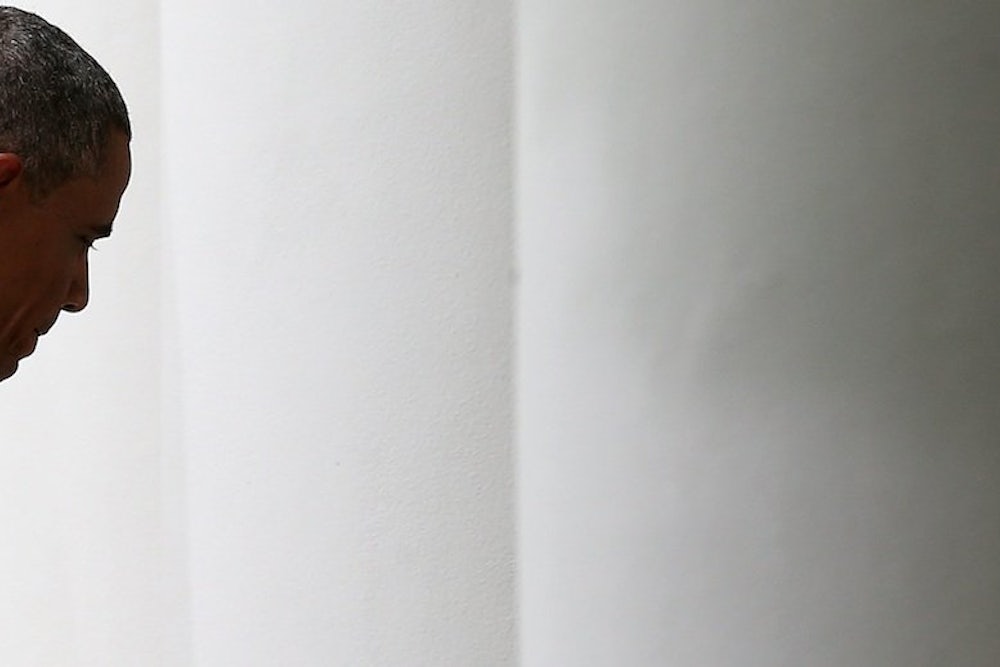For those of us who have long wondered why the Justice Department never investigated Wall Street, the Associated Press subpoena scandal illustrates a key point: The Justice Department sets priorities based on what it hears from the White House. When the White House wanted to identify and prosecute leakers of classified information, Justice sprang into action and used extremely aggressive tactics. "I make no apologies" President Obama said today, for being concerned about leaks.
Here, the AP story is the mirror opposite of the Wall Street scandal. After the financial crisis, when Justice Department leaders cocked their ears toward the Obama White House and Treasury Department, they heard nothing. Consequently, Justice adopted a passive, decentralized and desultory approach to Wall Street investigations. The clear priority at the very top of our government was to restore the health of the financial industry, not to punish those who nearly wrecked it. Even as we learned about the failures of Justice Department leaders to organize any significant effort at pursuing Wall Street fraud, there was no self-correction.
This happened because President Obama has provided deceptive “cover” for the Justice Department’s failures. First, he has stated repeatedly that most Wall Street behavior was “unethical” but not illegal (then why the numerous civil fraud actions against the major banks brought by the Securities and Exchange Commission?). And, second, he created two Potemkin financial fraud task forces to give a false impression of a centrailized, aggressive effort. Meanwhile, from the earliest days of his presidency, Obama has appointed officials from the finance industry or white-collar defense bar who rotate into government and back into the finance industry or the law firms that defended banks.
Before the House Judiciary Committee on Wednesday, Attorney General Eric Holder—berated for years by Republicans for the Fast and Furious operation and Justice’s actions on immigration and voting rights—quietly dug himself even deeper by contradicting his own previous admission that the size of megabanks has been an “inhibiting factor” in prosecutions: "Let me be very, very, very clear,” he said. “Banks are not too big to jail.”
Holder’s shifting rationalizations for his department’s failures are embarrassing. What’s worse, on May 3, at a Corporate Crime Reporter conference at the National Press Club, Denis McInerney, the deputy Assistant Attorney General for the Criminal Division, defended Justice’s extensive use of non-prosecution and deferred prosecution agreements, even in cases where criminality has occurred, in part by making the delusional statement: “[O]ver the last ten, twenty years, we have seen a complete radical change in how the corporate world behaves in a very positive way.”
That would be news to the Senate Permanent Subcommittee on Investigations, which during the past three years has investigated and reported publicly about extensive evidence of systemic wrongdoing at Washington Mutual, Goldman Sachs, HSBC and now JPMorgan. Under the bipartisan leadership of Senators Carl Levin, Tom Coburn, and John McCain, the PSI has repeatedly shown that when independent competent fact finders devote extensive time and resources to uncovering wrongdoing at our largest banks, they find it.
Nevertheless, the Justice Department has never prosecuted a single individual at these banks. And in Holder’s four years, the House Judiciary Committee has never held a single oversight hearing on the failure to prosecute white collar crime. With the exception of Senator Chuck Grassley, the Senate Judiciary Committee has been no better, quietly nodding along as Holder cites utterly misleading claims of success in prosecuting garden variety financial fraud and small-fry mortgage brokers. Holder was far less succesful in dodging responsibility for the AP subpoenas, but his repeated claims of "I don't know" also mirrored the ineptness and lack of accountability he's demonstrated on Wall Street investigations.
With President Obama's gratitude, Justice Department leaders will likely one day rejoin the prestigious white collar bar and make millions of dollars a year to defend the very bankers they were supposed to hold accountable (as Lanny Breuer, the former Assistant Attorney General for the Criminal Division, already has done). And the damage done to the public’s trust in the equal administration of justice and the integrity of the financial markets, like still waters, runs deep.
Jeff Connaughton, a former investment banker, lobbyist, aide to Senator Joe Biden, and Clinton White House lawyer, worked with former Senator Ted Kaufman on financial reform in legislation in 2009 and 2010. He is the author of The Payoff: Why Wall Street Always Wins.
